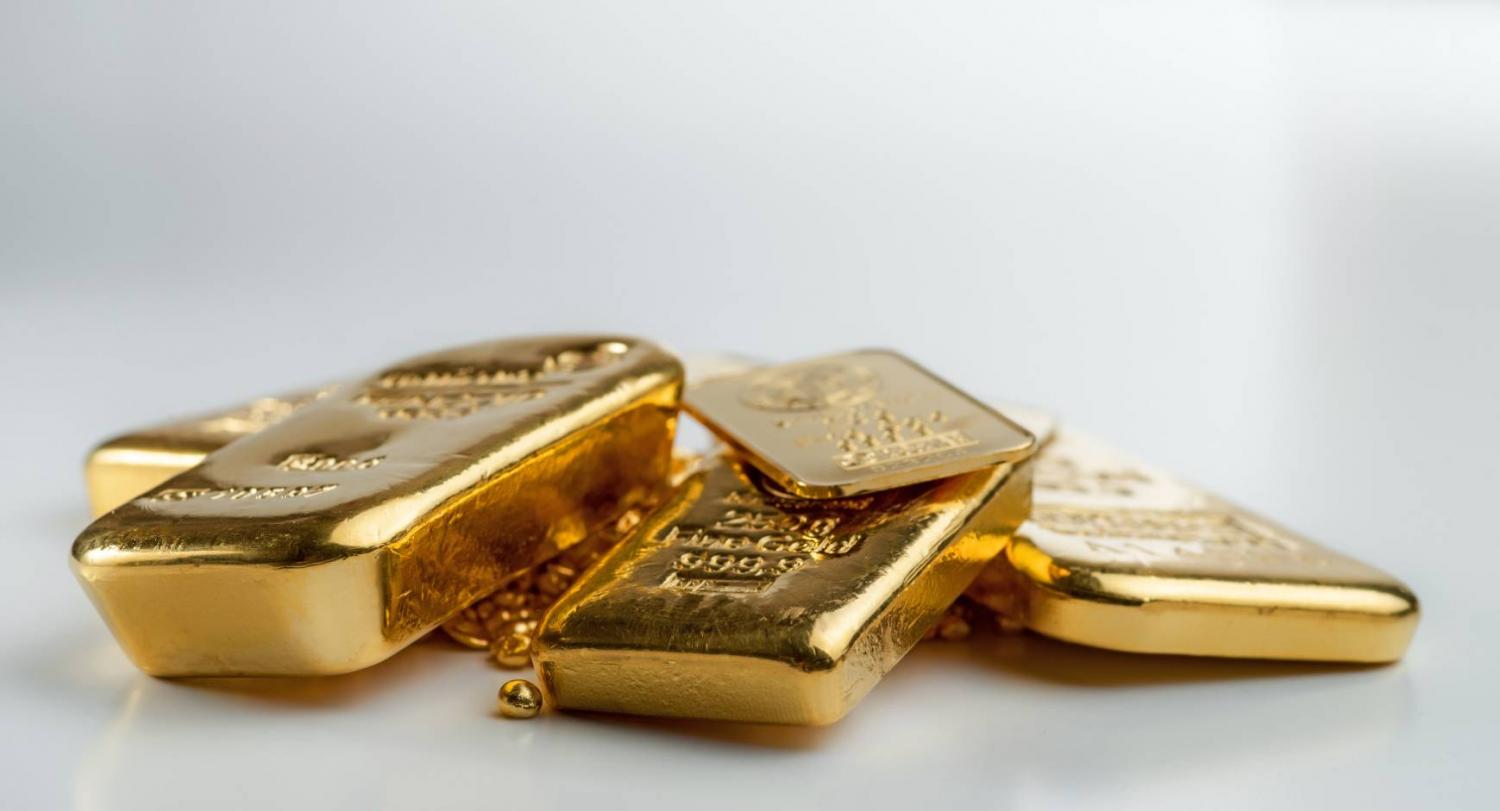
Investment can be tricky during periods of high inflation.
Inflation, whether it is high or low, inevitably has an impact on the actual return of investments, though investors normally consider it an enemy.
Avoiding investment can be considered a risk because the real value of money is reduced when inflation rises.
Investors must strategically select assets for different levels of inflation to generate returns that beat inflation.
During the past year, inflation surged rapidly, causing product prices and the cost of living to rise considerably. High inflation also affects the economy as the capital market fluctuates.
Investors must consider the causes for rising inflation and anticipate future trends.
According to economists, inflation rose rapidly worldwide as demand for goods and services soared after being suppressed during the pandemic, while manufacturing, transport and labour markets were unable to catch up to serve growing demand following the pandemic.
Although global inflation has decelerated, the labour market remains tight, while consumption is strong amid a partial economic recovery, note economists.
The sharp increase in oil prices, now approaching US$100 per barrel, means inflation will remain high in the short term.
Investors need to analyse and reflect upon how inflation affects different assets.
Phongthorn Thavontanakul, chief executive and founder of Lief Capital Asset Management, recently shared his thoughts on assets that can beat inflation amid economic uncertainties.
He has opinions on the prospects for investment in stocks, debt instruments, real estate investment trusts (REITs), commodities and gold.

Some people turn to safe dividend stocks when inflation is elevated.
Stocks
When the Kenneth R French Data Library looked into returns for US stock investment from 1947 to 2021, the actual returns differed in relation to inflation rates. During periods when inflation ranged from 0-5%, the real return after deducting inflation was 0.90% per month or 12% per year.
When inflation ranged from 5-10%, the rate of real return was 0.40% per month.
When inflation exceeded 10%, the real return was roughly 0.10% per month.
"If inflation is low, you should invest in growth stocks in areas such as technology, innovation or luxury goods because low financial costs allow companies to reduce interest costs," said Mr Phongthorn.
Conversely, if inflation is high you should invest in safe stocks (defensive or high-dividend stocks) such as essential goods, hospitals, infrastructure and public utilities because they are proven necessities that everyone needs, he said.

Mr Phongthorn advises to invest in safe stocks when inflation is high.
Debt instruments
Statistics from Allianz Global Investors compiled from 1971-2021 showed when US inflation ranged from 2-8%, US government bond and debt instruments with a maturity of less than one year provided an annual return of 2-3%, while bonds with a maturity of 1-5 years provided a return of roughly 8-13% per year.
Investment-grade corporate debt instruments provided a return of roughly 6-8% per year.
Investing in short-term debt instruments, which do not provide a high rate of return, may produce a low real return after deducting inflation, or may produce a negative return even after inflation has decelerated, said Mr Phongthorn.
When the policy interest rate is decreasing, returns on debt instruments tend to increase, he said.
"Inflation-linked bonds provide an interesting option because the interest rate varies according to inflation," said Mr Phongthorn.
"The interest expense [coupon] consists of the effective interest rate, which is fixed, and interest expenses, which depend on the rate of inflation during that period."
In addition, the principal is protected from inflation so it has the same purchasing power, which will increase with higher inflation, while interest expenses will increase or decrease according to the rate of inflation and are paid as a percentage of the principal that keeps growing.
Thus, when inflation rises, interest expenses will follow suit.

REITs
Data from the FTSE Nareit All Equity REITs Index during the period 1972 to 2021 showed if inflation is less than 2.5%, returns in terms of market profits and dividends from investing in REITs was roughly 10% per year.
When inflation ranged from 2.5-7.0%, the return was 16% per year, and when inflation exceeded 7%, the return was 13% per year.
Although returns on REITs in the past were attractive, the real estate sector has not yet recovered, resulting in returns being unimpressive, he said.
That means this form of investment cannot withstand inflation very well, said Mr Phongthorn.
"The poor showing was driven by concerns the economy is likely to slow down. In addition, the work from home trend has continued since the pandemic," he said.
"This makes REITs as an investment group only suitable for those who can take relatively high risks and invest for the long term."

Commodities
This segment represents a group of assets, not only gold or oil. Natural resources have been one of the factors behind the rise in inflation. Historical data shows a constant relationship between inflation and the prices within this asset group over a corresponding period, said Mr Phongthorn.
If investors want to diversify risk in their commodity portfolio, he said they may consider a mix of 50% gold, which through a supply-limiting mechanism helps prevent the effects of inflation. The balance would be in other natural resources, such as oil or industrial metals.
This portfolio mix could generate an annual return of up to 9% and help manage volatility in an overall investment portfolio, said Mr Phongthorn.
Investors should not invest 100% in commodities because they are highly volatile, he said. Only 5% of an investment portfolio should be made up from commodities, said Mr Phongthorn.

Gold
Inflation is considered a direct factor affecting the price of gold. When inflation is high, gold prices tend to increase, with the converse occurring when inflation eases.
Data from Bloomberg indicated from January 1971 to December 2022, gold returns averaged 7.78% per year. This is significantly higher than the annual inflation rate in the US during that period of 3.7%.
In years where an economic crisis happened, gold generated positive returns. For example, gold returned 24% during the dot-com crisis in 2001, 60% during the subprime crisis in 2008, and 7% during the pandemic in 2020.
PRICE TREND
Pawan Nawawattanasub, chief executive of YLG Bullion International, said the domestic price of gold recently set a record high of 33,050 baht per baht weight.
Although the global gold market is quite stable, domestic gold prices have surged this year as the baht has depreciated roughly 6% year-to-date, she said.
If the baht weakens to 37 to the US dollar, there is an opportunity for the domestic price to exceed 33,250 baht, said Ms Pawan.
"Gold has a chance to set a new high and surge both in the short term and over the next 3-5 years when the US Federal Reserve begins to cut interest rates," she said.
As for advice on investing in domestic gold during this period, Ms Pawan said investors can speculate within a range of 32,250-33,450 baht, as well as when gold prices in the global market are not too volatile.
However, the baht depreciation is likely to continue in the short term because the Fed is unlikely to maintain high interest rates for a long period of time as it may affect small businesses as well as the banking sector, she said.
"By the first quarter of next year, the Fed is expected to begin cutting interest rates again," said Ms Pawan.
An analysis from Siam Commercial Bank noted when inflation is rising, investing in gold is the best option because it is an asset that has its own value and is considered a good hedge against inflation.
Some people avoid gold investment because even though it is easy to buy, it can be inconvenient to sell. In addition, some people don't want to hold physical gold because it is difficult to store safely.
STOCK OPTION
Investing in stocks involves risk because they can be volatile. In many cases, investors will register a loss if they don't invest carefully.
Investors are advised to choose safe stocks during periods of high inflation, particularly those offering a high dividend yield.
Information regarding stocks offering high dividends can be found on the Stock Exchange of Thailand (SET) website, which collects such information based on data gathered over the previous five years.
The dividend yield is calculated from the value of dividend per share compared with the stock price.
A high dividend yield can reduce risk from stock price fluctuations.
Stock dividend yields should be greater than inflation rates, deposit interest rates and government bond returns, which means in the current environment dividend stocks should have a rate of return of at least 5%.
The dividend yield reflects the company's ability to create profit and pay dividends each year.
Stocks with a high dividend yield should also have a consistent dividend payment history with a rate that exceeds inflation.
These companies should also have a robust financial position with positive cash flow and strong trading liquidity.
This kind of information can easily be found on each company's website, or in the investor relations section of the SET's website, as well as in research provided by securities analysts at settrade.com.
Investors should also examine the history of returns to shareholders, or the return on equity (ROE). ROE indicates the trend for generating profits from the company's current assets.
A high number means the company is earning good profits and there is an opportunity for it to pay a dividend, or the stock price could possibly increase in the future.
For investment in REITs, investors are advised to study the economic trends and market outlook.
REITs and infrastructure funds are unattractive in the current environment, yet several funds still generate consistent returns, sometimes greater than 5%.
In summary, inflation is likely to remain elevated between 3-4.5% for another year or so.
Investors should search for various assets that can beat inflation, including stocks, bonds, gold or REITs, that match their risk tolerance.
In Thailand, inflation is gradually increasing. If investors have a balanced investment portfolio and carefully study related information, they can maintain the value of their money and beat inflation.
The caveat is investors do not want a severe recession or "hard landing" in the near future.